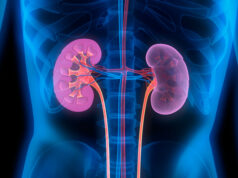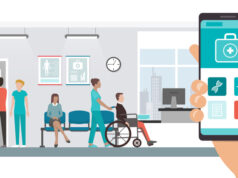
In the last decade, technology has progressed more than ever before, influencing nearly every aspect of our lives. One of the most important areas impacted by this unprecedented period of technological advancement is health. Innovation in healthcare has dramatically altered the way that health information and data is stored, accessed and shared.
Patients have more and more opportunities to collect, own, and take action on their data. The Internet of Healthcare (IoH) provides a vast array of wearables and personal health data devices that capture info while one sleeps, eats and is on the go. Artificial Intelligence (AI) is adding even more personalization to data-driven devices designed to influence care from coaching to monitoring. Electronic Health Records (EHR) and patient portals collect, store, and now, more recently, make available to patients and caregivers the clinical data from the many providers involved in one’s care.
The EU adoption of the General Data Protection Regulation (GDPR) this year signals an important shift in favor of all data owners’ rights. Groups embracing GDPR are giving consumers (in the case of healthcare, patients) the choice to opt-in. By respecting data privacy rights, research organizations and patient foundations can provide an efficient and safe platform for patients and caregivers to now opt-in to sharing their de-identified data to improve their own care. With these data protections in place in the EU (and potentially coming to the U.S., as well), and increased recognition and value being placed on patient-reported data, this is the opportune time to invite patients and families to securely share their data.
Patients have more opportunities to make a difference.
Patients can influence and benefit when their health data is collected and put to work (with their consent). Patient-reported data may help researchers and clinicians uncover patterns that would otherwise remain hidden, leading to new ways of predicting, diagnosing, managing and treating illness. These breakthroughs can lead directly to improvements in a patient’s own care.
Including patient and caregivers’ voices in data collection also helps capture additional key elements about a disease’s progression and its impact on people’s lives. Communicating personal experiences with a condition assists researcher in prioritizing what matters to the patient and family. For example, researchers focusing on a particular symptom may fail to consider whether or not that symptom is significant in the patient or family’s eyes. Patients and families managing a chronic condition might care most about a specific symptom that is extremely disruptive to their quality of life (e.g., how to address insomnia so that everyone in the family can get some sleep).
Opting in to contributing data for research requires that patients and families have an easy and secure way to obtain their own health data. Access to the entire medical record and the ability to sync data from multiple portals and health systems are critical in giving patients the full picture of their health story, which they can then choose to share with researchers and clinicians to fuel much needed data for Natural History Studies. Efforts through movements such as OpenNotes, an international push for Patient-Accessible Electronic Health Records, and support for increasing interoperability with FHIR standards have helped more and more patients obtain meaningful, in-depth data about themselves. However, there’s still more work to be done to give patients and families full ownership of all their data.
Patients and families should feel empowered to ask their care providers for their health info. When equipped with their own data, patients can become catalysts for innovation and break down data silos that exist among institutions, and also become their own best advocates in understanding their own health and care. We should encourage and inspire patients and families to make the decision to opt-in and share their data with trusted research organizations and foundations. By overcoming traditional research barriers, and empowering patients and families to contribute their data, they can have a growing influence on setting the research agenda and advancing scientific knowledge in delivering the best possible care and outcomes.
By opting in, a patient is empowered by their own data and possesses the ability to uniquely contribute to research and communicate with physicians and caregivers. The time has come to invite patients into the advancement of medical research. It’s time to opt in!
Photo: LumineImages, Getty Images







